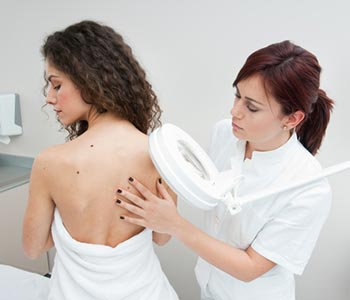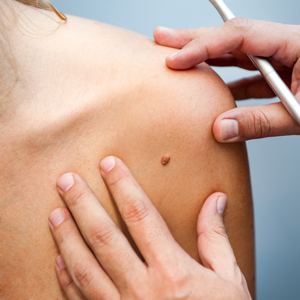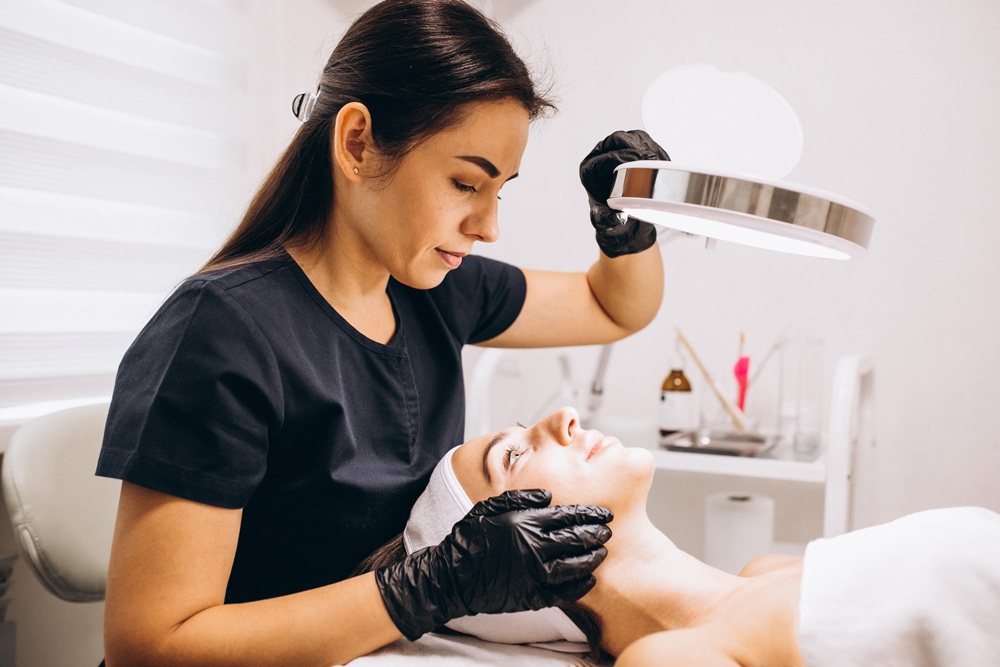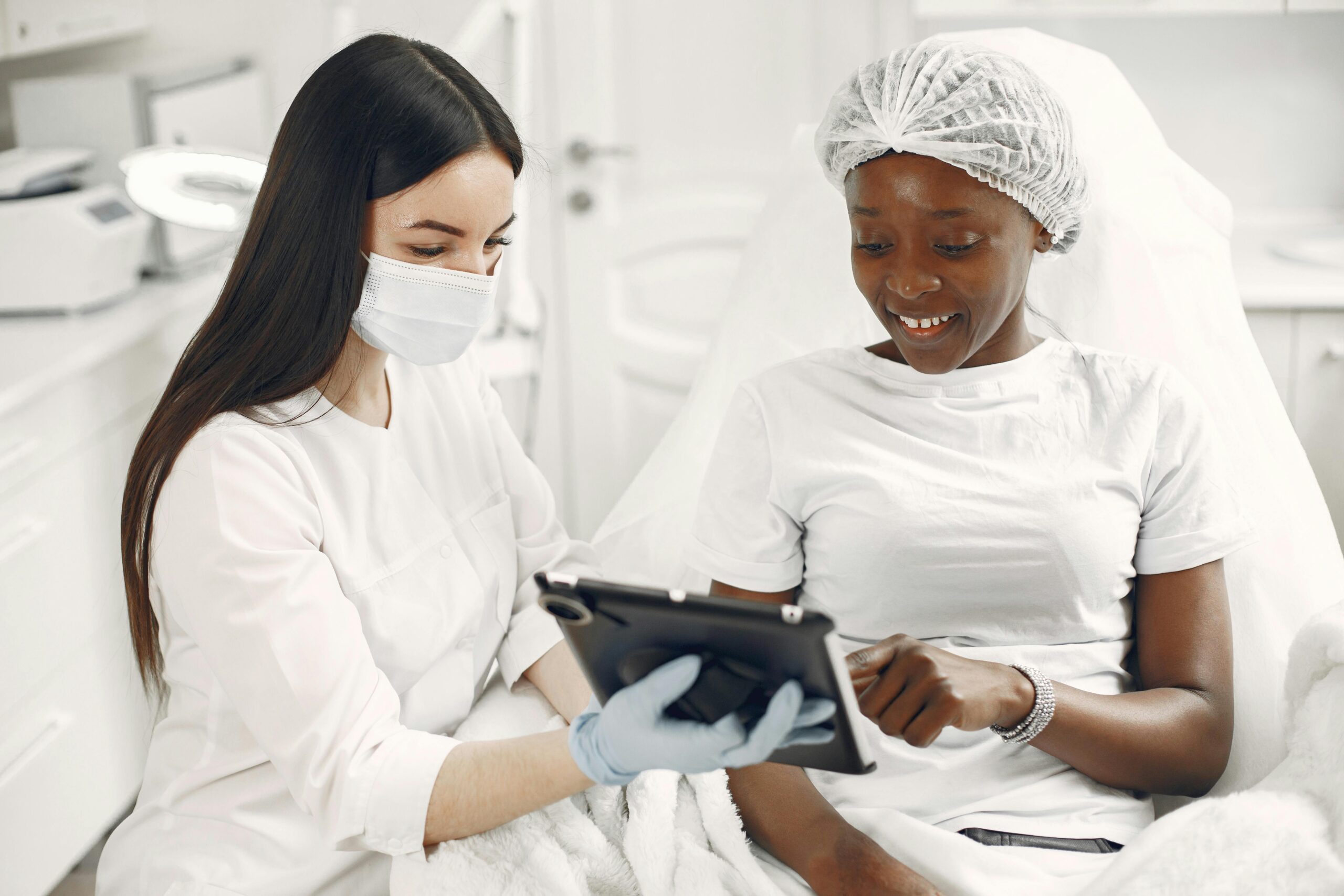When seeking skin care, choosing the right professional is crucial for your skin health. Board…

Questions about Skin Cancer Symptoms? Serving Akron and Northeast Ohio
“Cancer” is a word that no one wants to hear, but fortunately, skin cancer is one of the easiest types of cancer to detect because it is almost always visible to the naked eye. Being aware of what the symptoms and signs of skin cancer are and getting annual skin checks by a board-certified dermatologist are among the most important things you can do for your skin health. At Allied Dermatology and Skin Surgery (Akron, Mentor, and Mayfield Heights OH), our team of dermatology professionals are experts at identifying, diagnosing, and treating cancers of the skin. Below, we answer common questions about skin cancer and its symptoms.
What is skin cancer?
Skin cancer is the abnormal, uncontrolled growth of cells in the skin. There are several types of skin cancer, and they are usually distinguished by the type of skin cells that are affected. The three most common skin cancers are:
- Basal cell carcinomas, which affect the basal cells in the deepest layer of the epidermis
- Squamous cell carcinomas, which occurs in the squamous cells in the epidermis
- Melanoma, which forms in melanocytes, which are the cells that contain the pigment melanin
While melanoma is typically the most aggressive and deadliest form of skin cancer, the other two forms can cause extensive damage to your skin and in some cases, can also be fatal.
What causes it?
By far, the single greatest factor that contributes to skin cancer is exposure to the sun’s harmful ultraviolet (UV) rays. In fact, it is estimated that approximately 90 percent of all skin cancers are due to sun exposure. Other factors, such as environmental exposure to toxic chemicals or radiation and having a weakened immune system, can also contribute to the development of skin cancer.
Who is most likely to get skin cancer?
While anyone who has spent a lot of time in the sun without skin protection is at risk, people who have lighter hair, lighter skin, and lighter eyes are at a greater risk of developing skin cancer. In addition, people over 50 years old, who have a family history of skin cancer, or who have a lot of moles on their body are at a higher risk.
What are the signs and symptoms?
The symptoms of skin cancer can differ depending on the type of skin cancer that has formed. Call our office for more information Call us at 1-866-337-6631 or Schedule an Appointment
Basal cell carcinomas usually appear on the parts of your body that receive the most sun exposure, such as your face, neck, and hands, and can appear as one of the following:
- Flat, brown or flesh-toned lesion that looks like a scar
- A waxy or pearly bump on the skin
- A sore that heals but then keeps returning
Squamous cell carcinomas also tend to appear on areas of the body that are most exposed to the sun and can look like flat lesions with scaly surfaces or red nodules on the skin.
Melanomas can form in moles that already exist on your body or in other, new locations. They can look like a large brown spot that has darker flecks in it, dark or painful lesions that itch or feel like they are burning, or they can be smaller lesions that have irregular borders. There may be portions of the melanoma that are blue, blue-black, pink, red, or white.
What do the ABCDEs stand for?

The ABCDEs are a good way to remember the warning signs of skin cancer. They stand for:
- Asymmetry – an asymmetrical mole is a warning sign of melanoma
- Border – irregular borders, instead of a smooth circular border, can signal cancer
- Color – if a spot has multiple different shades instead of being all one color, it could be a melanoma
- Diameter – larger moles are more suspicious than smaller ones
- Evolving – if a mole has changed over time, then you should have your doctor check it
What are the treatment options?
Typically, the earlier a cancerous growth is found, the more easily it can be treated. That’s why it’s so important to be vigilant about monitoring your skin, both at home and with annual skin checks. Depending on the type of skin cancer you have, how large it is, where it is located on your body, and whether it has spread, Our providers may recommend one or more of the following:
- Medications
- Deep chemical peels
- Mohs micrographic surgery
- Surgical excision and biopsy
Other treatment methods or therapies, such as radiation or chemotherapy, may also be recommended.
How do I schedule an appointment?
If you have noticed a suspicious spot on your skin that looks like it may be skin cancer, or if you are simply in need of your annual skin check, we encourage you to take control of your health by calling Allied Dermatology and Skin Surgery today at 1-866-337-6631



